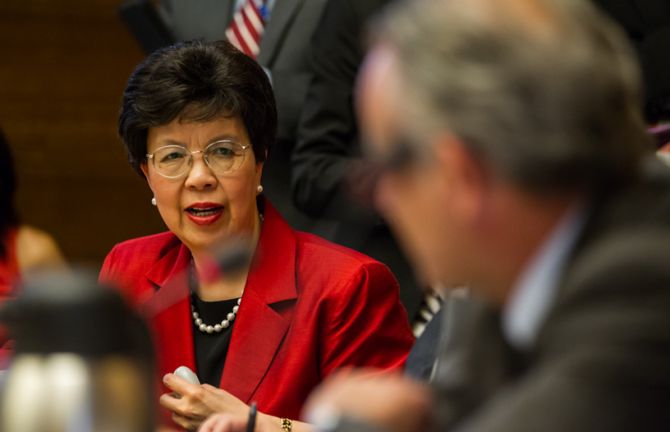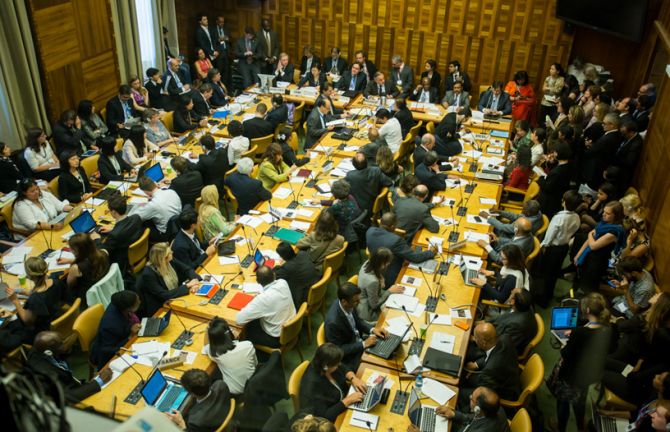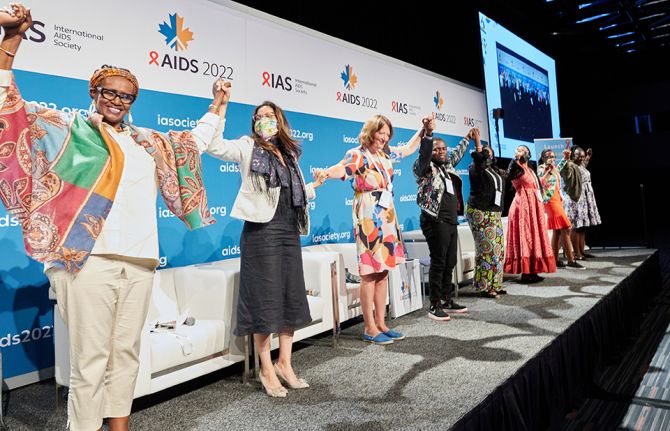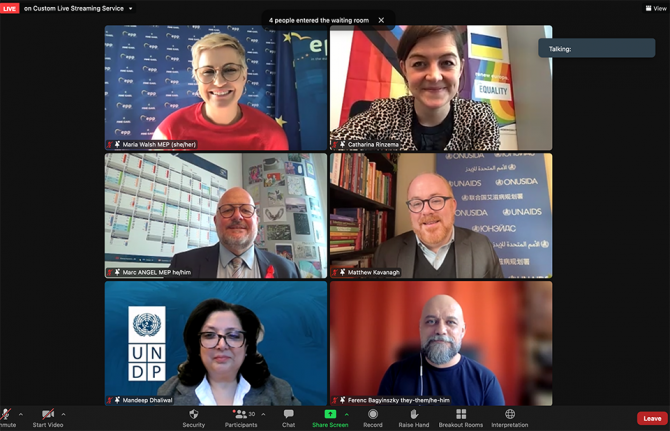

Arthur Chioro, Minister of Health of Brazil and Luiz Loures, UNAIDS Deputy Executive Director.

Margaret Chan, WHO Director-General.

Participants at the sixty-seventh session of the World Health Assembly.
Update
Access to medicines: challenges and opportunities for developing countries
20 May 2014
20 May 2014 20 May 2014Despite their economic and cultural diversities, the BRICS countries, an association of five major emerging national economies—Brazil, Russian Federation, India, China and South Africa—are facing similar health-care challenges, including access to health services and medicines, growing health costs, infectious diseases, such as HIV and tuberculosis, and the growing prevalence of non-communicable diseases.
In order to find solutions on how to provide health care to millions of people, in particular the most vulnerable, representatives from BRICS and other low- and middle-income countries met on 19 May in Geneva, on the sidelines of the sixty-seventh World Health Assembly.
The meeting, sponsored by WHO, UNAIDS, UNITAID and UNDP, focused on identifying strategies and initiatives to overcoming the bottlenecks to increasing access to pharmaceutical technologies. Participants analysed ways to sustain treatment programmes and the scaling-up of coverage, ensure competition within the pharmaceutical sector and exceptions to intellectual property rights related to public health concerns.
The BRICS countries have a long history of making use of policy options, such as compulsory licencing to find a better balance in managing intellectual property rights for public health. At the same time, the BRICS countries expressed a strong desire to collaborate to create favourable environments for fostering accessibility and enhancing the affordability of health products in BRICS and other low- and middle-income countries.
Quotes
"There is a need for a renewed dialogue on access to medicines and intellectual property to ensure that no one is left behind. Success in one country represents success for many others. The BRICS are in a good position to lead the way."
"The BRICS countries should work together with other developing countries to define concrete cooperation formulas to access commodities and regulations."
"People can be killed by biological weapons and can be killed by no access to medicines; the results are the same."
"We have set a national target to produce 90% of vital medicines in the Russian Federation. We call on international pharmaceutical companies to participate in this process."
"We should work together to protect the full flexibility of TRIPS, and we call on international society to support the efforts of the countries."
"We need to establish cooperation programmes on research and development and innovative technologies. We would hope for WHO and UNAIDS to play a bigger role in promoting South–South cooperation in this area."



